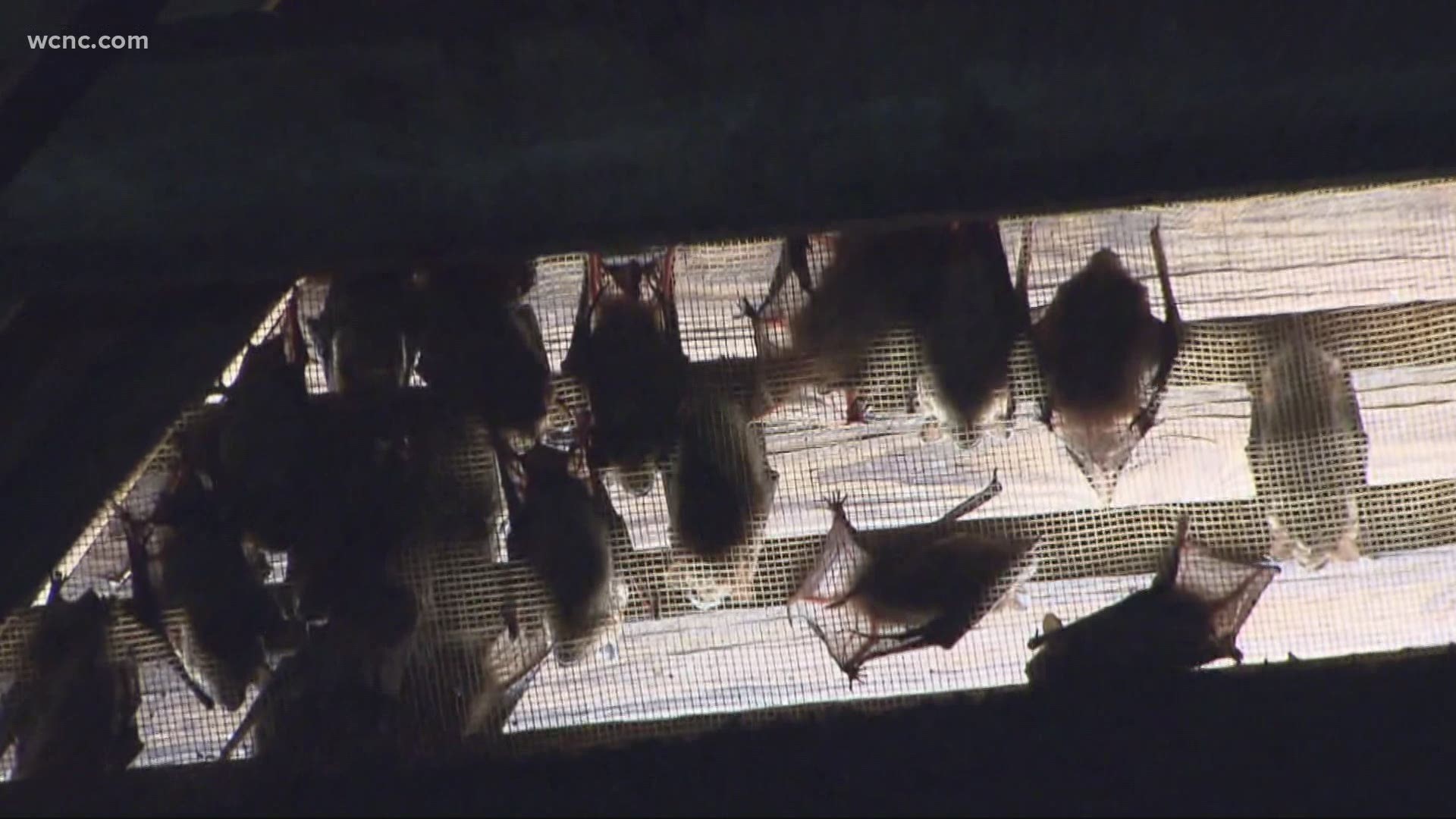NORTH CAROLINA, USA — The NC Wildlife Resources Commission is warning North Carolina homeowners that they should get bats out of their home before pup-rearing season begins on May 1.
According to the NC Wildlife Resources Commission, Bat scat, called guano, is the most obvious indication that bats may be living in the gable vents, behind a shutter, or in another nook around the outside or inside your home.
The Commission suggests if bats are inside your home, a licensed Wildlife Control Agent can safely evict them for you. Click here to find a list of licensed professionals on the Wildlife Commission website.
Bats hibernate or migrate south during the winter, which is why you may only start to see them now, a release from the commission stated.
The Commission says bats are ecologically and economically valuable, providing free pest control as they nearly devour their own body weight in insects nightly. Their appetite increases even more during pup-rearing season, which runs May 1 – July 31 across North Carolina.
“Young bats are flightless for three to four weeks after birth and depend on their mother for survival during that time. If a homeowner waits until May to install an eviction device on the opening that the bats have used to get to their roost, female bats will not be able to get to their young, leaving the pups to starve to death or try to find other ways to escape, including entering the homeowner’s living space,” stated Katherine Etchison, wildlife diversity biologist with the Wildlife Commission.
According to the Commission, if you are unable to remove the bats before rearing season, it is best to leave them in their roost until the end of July. However, you can ask a Wildlife Control Agent to seal off entryways that lead into the living space of your home to minimize the chance of human interaction.
If a bat does enter the living space, it’s important to determine if human exposure occurred. If someone did come in contact with a bat the Commission suggests you contact your county health department to get the animal tested for rabies.

